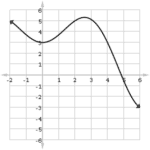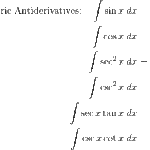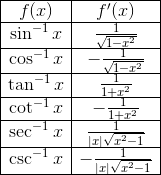The main reason for taking AP exams is to earn college credits before even stepping foot on campus. After all, the letters “AP” stand for advanced placement. So if you can score well on the AP Calculus AB or BC exam, then you may automatically earn credits for college-level calculus courses. This gives you a significant head start in your college career!
First and foremost, if you are unsure which test to take, check out this helpful article: What’s the Difference between the AP Calculus AB and BC tests?.

How Many College Credits Can I Earn?
Typically colleges and universities offer the equivalent of one semester of calculus if you score at least 4 (out of 5) on the AP Calculus AB exam, or two semesters if you score at least 4 on the AP Calculus BC exam. Depending on the school, this could mean 3-5 college credits based on your AB score or 6-10 credits based on the BC.
Every school is different, though, so it’s important to know before you go! For example, some colleges and universities award credits even if you scored a 3. Other schools might look at the AB subscore of the BC test. Suppose you didn’t do so well on the BC test, but did ok on the problems that tested AB material. Then the AB subscore alone might entitle you to college credits.
Below is a chart indicating how a few different institutions handle AP credit. However because policies may change, you should also double check with each school that you apply to.
| School | Calculus AB | Calculus BC | Calculus BC: AB Subscore |
|---|---|---|---|
| Boston College | 3 cr. if score ≥ 4 | 6 cr. if score ≥ 4 | 3 cr. if score ≥ 4 |
| Columbia University | 3 cr. if score ≥ 4 | 3 cr. if score = 4 | |
| 6 cr. if score ≥ 5 | |||
| Fordham University | 3 cr. if score ≥ 4 | 3 cr. if score ≥ 4 | |
| MIT | 12 cr. if score = 5 | ||
| Oberlin College | 4 cr. if score ≥ 4 | 8 cr. if score ≥ 4 | 4 cr. if score ≥ 3 |
| The Ohio State University | 5 cr. if score ≥ 3 | 10 cr. if score ≥ 3 | |
| The University of Georgia | 4 cr. if score ≥ 4 | 4 cr. if score ≥ 3 | |
| The University of Washington | 5 cr. if score = 3 or 4 | 5 cr. if score = 3 | |
| 10 cr. if score = 5 | 10 cr. if score ≥ 4 |
Credits vs. Equivalent Courses
Some schools may count AP scores as equivalent courses without awarding actual credits. For example, Calculus I may be a prerequisite for an upper level biology course. A high enough score on AP Calculus AB or BC exam may entitle you to bypass the Calc I prerequisite, allowing you to sign up for the bio course, even if the school did not award you AP credit for calculus.
Further Benefits
Many colleges and universities designate certain courses to fulfill general requirements (sometimes called areas or objectives). These requirements may comprise quantitative reasoning or critical thinking for example. Students would be expected to take a number of courses in each area as part of their major course of study.
Strong AP scores may also fulfill these kinds of requirements. For instance, a passing score of 3 on the AP Calculus AB or BC exam might count towards a quantitative reasoning requirement.
As always, check with the college or university to determine what their policies are.
Summary
AP exam scores can translate to college credits, which means fast-tracking your college career. Walking onto campus with credits already on your transcript is just like having money in the bank.

To find out if your intended college or university gives AP credit for calculus, try
this handy tool.





Leave a Reply